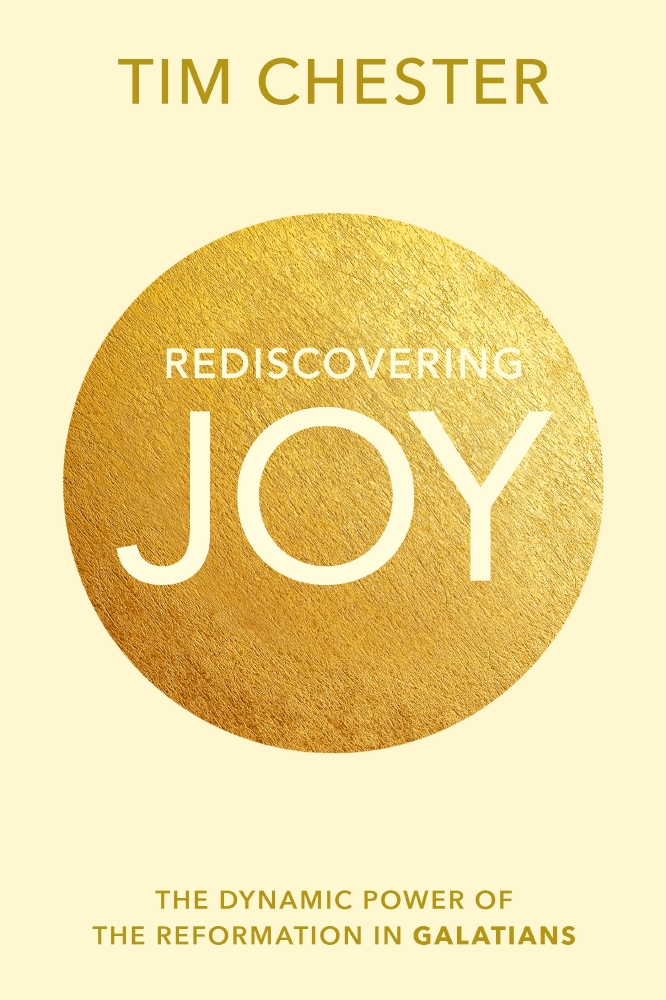500 years ago a young German monk walked from his monastery, across the town of Wittenberg, to the Castle Church. The door of the church acted as a kind of public noticeboard. There the monk nailed a poster with 95 statements or theses. His name was Martin Luther. And that act kick started what became known as the Reformation – the rediscovering the biblical message of salvation in Christ.

Tim Chester
That much you may know. But here are five things you may not know about the Reformation.
The Reformation was about sausages
In Lent 1522 a group of students in Zurich held a sausage-themed party. Traditionally only vegetables and fish were eaten in Lent. But they wanted change and that meant hot dogs. The city council fined the host of the party, albeit only a nominal amount. A few days later Huldrych Zwingli, the leader of the city’s church, produced a pamphlet in support of the students. The Bible, he argued, didn’t have much to say about sausages. There was certainly nothing about eating sausages in Lent. The Council convened a debate to decide whether Zwingli’s views matched what was taught in the Bible. Zwingli won the day. But really he’d won before it started because the terms of the discussion assumed the authority of Scripture. And that, rather than sausages, was the real issue – though it’s reassuring to know that bacon sandwiches get the thumbs up.
Luther’s marriage was a bit fishy
In 1523 a group of nuns contacted Luther. In Catholicism your focus was on becoming right with God through the sacraments or monastic life. But the Reformers preached that being right with God is a gift. There’s no need to do works for God’s benefit. It’s already a done deal – achieved by Christ and received by faith. And that frees you up to serve your neighbour in love. Convent life made no sense. So the nuns wanted Luther to help them escape their cloistered life. Luther enlisted a merchant who regularly delivered herring to the convent. On 4 April the nuns escaped by hiding among the empty fish barrels. Their families refused to take them back, perhaps because what had just happened was still a crime under Church law. So Luther set about marrying them off – no easy matter, perhaps, since they smelt of fish! Gradually he found husbands for them all. All except one. No husband could be found for the ringleader, Katharina von Bora. So, somewhat against his wishes, Luther himself married her. He was 41 and she 26. It turned out to be a good match.
There were 97 theses before there were 95 theses
Luther’s famous 95 theses were not his first stab at provoking a debate. A few weeks before he’d posted 97 theses. They included an attack the Greek philosopher Aristotle who’d made something of comeback in the Medieval period. As it happens no-one took much notice of Luther’s 97 theses. Yet they were much more central to the thought of the Reformation. So, when Luther was summoned to account for his actions before his Augustinian order, it was to the themes in the 97 theses that he returned. Aristotle said we become righteous by doing right acts. Your identity is the result of your actions. It’s something you achieve. Luther said this gets things the wrong way round. In the gospel our identity is a gift from God. It’s something you receive. And then our actions flow from our new identity. Unbelievers can be constrained by laws and peer pressure. But a life of wholehearted righteous living is only possible if God makes us new people.
The Reformation wasn’t about salvation by works – at least not quite
There’s a version of the Reformation which says Catholics believed in salvation by works and the Reformers believed in salvation by faith. But it’s more subtle than that. In fact Catholics talked a lot about faith and grace. They would happily say we’re saved by grace. They would happily say that righteousness comes by faith. But grace for the Catholic Church is like a shot of adrenalin that boosts your spiritual performance. And righteousness is a God-given ability to live a righteous life – if you work at it at. But it’s up to you to live a righteous life that will win God’s approval. So the net result is grace plus works and faith plus works. The Council of Trent was the Catholic Church’s response to the Reformation (a response it has never repudiated). It says, ‘If any one says, that by faith alone the ungodly are justified in such a way as to mean that nothing else is required to co-operate in order to receive the grace of Justification and that it is not necessary for a man to be prepared and disposed by the movement of his own will; let him be anathema.’ (Canon IX) Against this the Reformers proclaimed the finished work of Christ. ‘It is finished,’ he cried from the cross. He has done everything. The Afro-American preacher D. J. Ward puts it like this:
The death of Christ was not an attempt. It was an accomplishment … ‘His name shall be called Jesus, for he shall save …’ Not attempt to save. Not try to save. Not hope to save. Not want to save. But ‘he shall save his people from their sins’. Now I hear this – I hear it on televisions, I hear it in churches – that God has done all he can do, the rest is up to you.’ If the rest is up to you, then he didn’t accomplish it … But if he did do it, he doesn’t need your best and your works need not speak for you. If he did do it, you can leave here rejoicing that your sins are now under the blood and he stands as your substitute, your mediator, before God this morning, pleading his blood, that perfect sacrifice, that holy attainment … He paid it all – every drop of it. Every sin I am going to commit, every sin I’ve thought about committing – he nailed it to his cross and I bear it no more. Praise the Lord. It is well with my soul.
The Reformation makes us small and Christ big
Why was the Reformation controversial in the 16th century? Why does it remain controversial today? The answer, I believe, is that the Reformation (or rather the biblical gospel it rediscovered) makes us small and Christ big. At the heart of the Reformation was the realisation that:
- We are more helpless than we realise.
- Christ is more sufficient than we realise.
- God is more gracious than we realise.
This is what’s meant be soli Deo gloria, to the glory of God alone. There’s no room in Reformation theology for human boasting. No-one can claim their salvation or their knowledge of God is down to their intellect, morality or religion. It’s all of God from start and finish. That’s our great hope and confidence. Our salvation is founded on the certain promises of God and the finished work of Christ. And if it’s all of God from start to finish, then the glory goes to him alone.

Tim Chester is the pastor of Grace Church Boroughbridge and a faculty member of Crosslands Training. He is the author of Rediscovering Joy: The Dynamic Power of the Reformation in Galatians (IVP).

